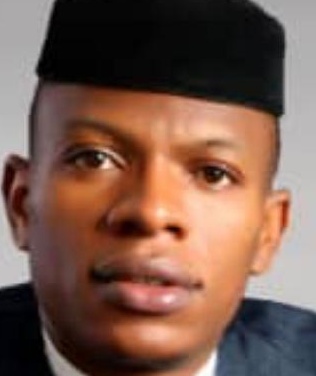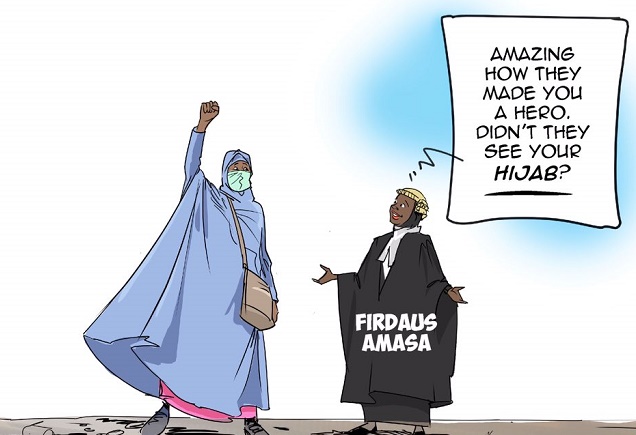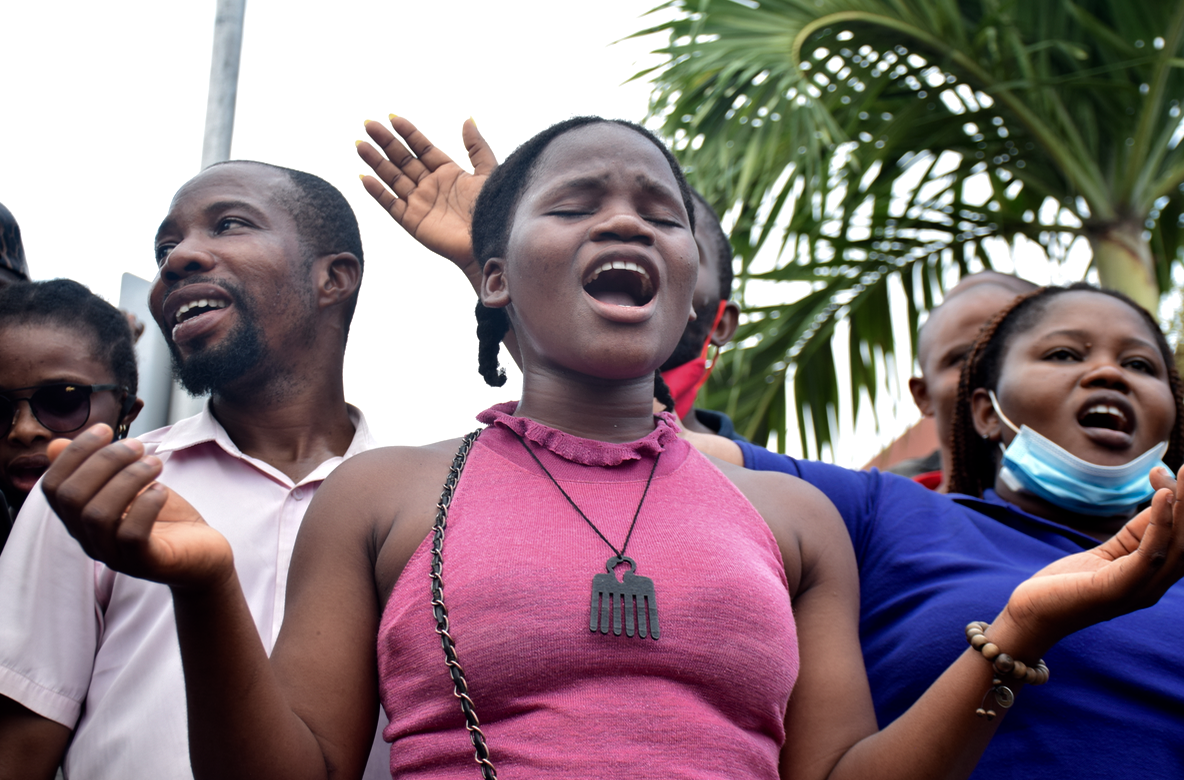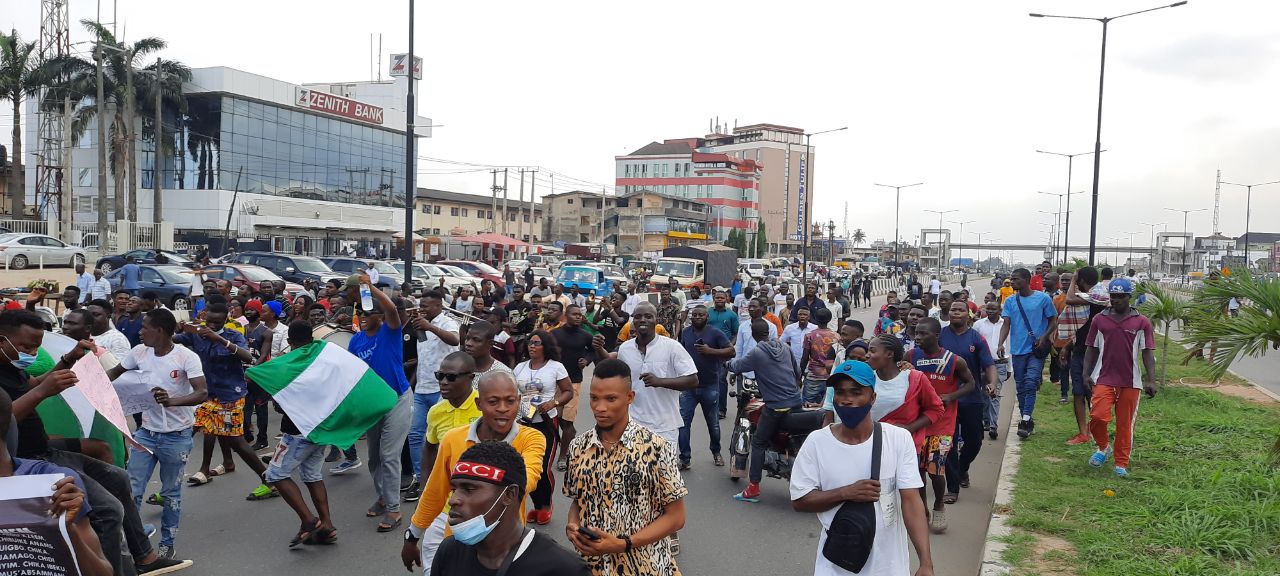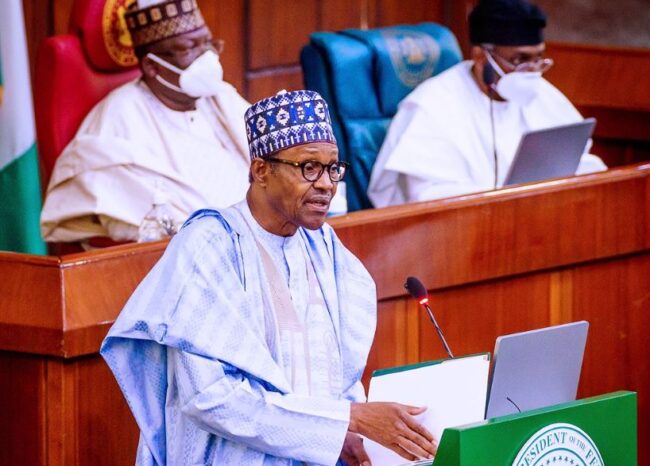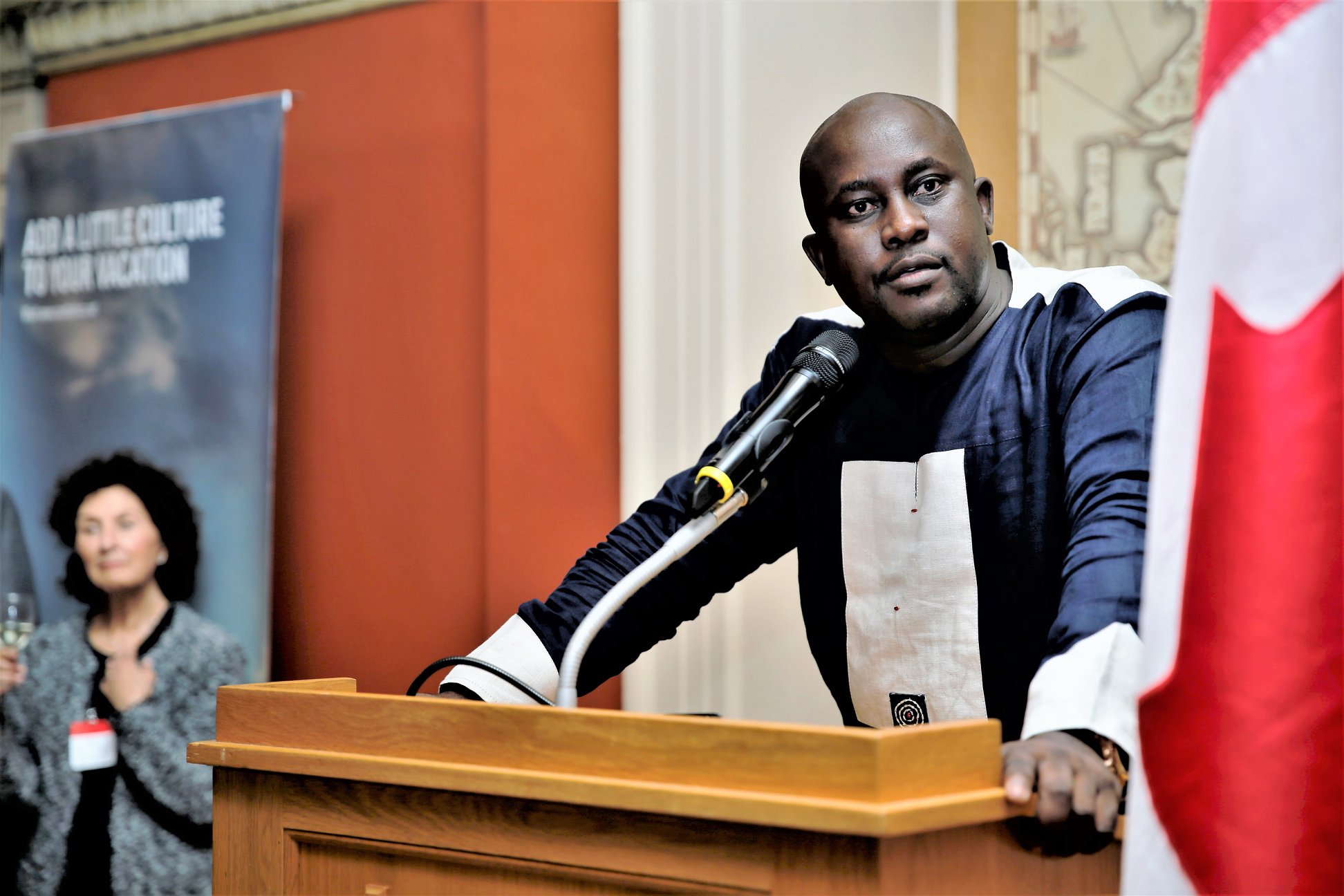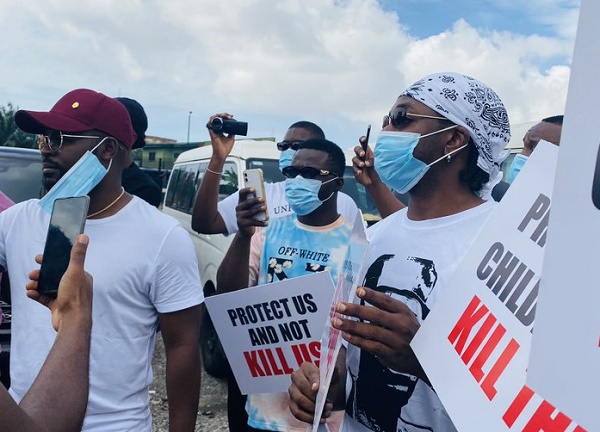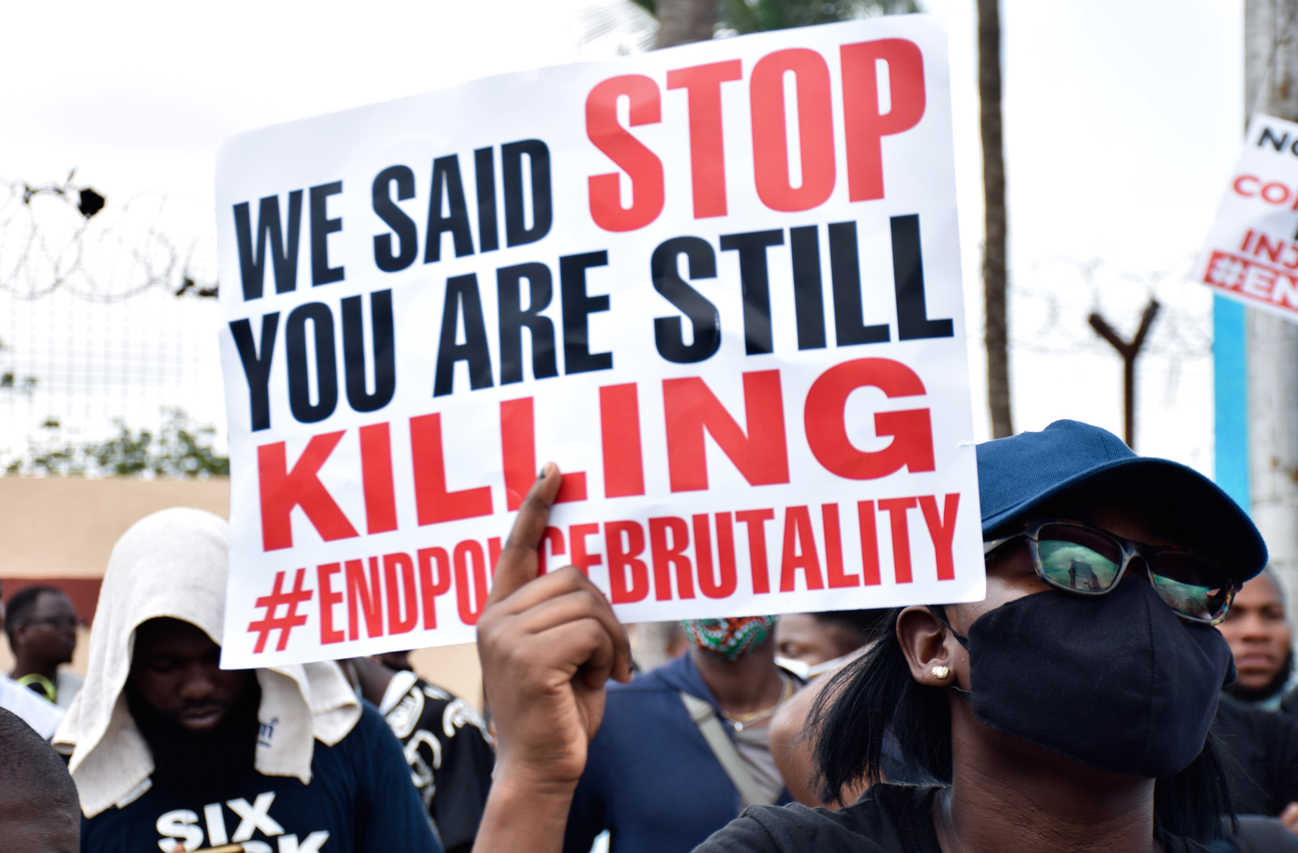#EndSARS protest and Mustapha Bulama's insensitivity
At a time when Nigerians, particularly her youth, are showing that they can rise beyond the traditional fault lines of ethnicity and religion by the unison with which they have gone about the ongoing nationwide protests against police brutality and bad governance in Nigeria, award-winning Cartoonist, Mustapha Bulama might have constituted himself to a reactionary forces even when young Nigerians are saying: out with the old. How?
On Saturday, Bulama, whose constant depictions of the Nigerian contradiction (through very instructive renderings), I have always admired, threw caution to the wind in the forced expression of his dissent to the ongoing protests which he thinks are politically motivated. In the said depiction, the now famous portrait of one Aisha Yesufu (who have since become the heroine of the struggle), draped in burqah and adorning her signature sling-purse with clenched fist punching the air, was cast next to the image of one Amasa Firdaus ─ the young lady involved in a row with Authorities of the Nigerian Law School over breach of the then law school protocol, by turning up to her Call to Bar ceremony with a hijab that scraped her hair-line and covered her ears, under her wig. In the cartoon, a surprised Firdaus asks, “Amazing how they made you a hero. Didn’t they see your hijab“?
Now, as pictures speak a thousand words, Bulama was literally attacking the fundamental strength of the ongoing struggle: its non-partisan, non-sectarian and non-ethnic fervour, which is the trick that continues to confer legitimacy on it, and win it support and endorsement from near and wide. To make matters worse, Bulama invites the irrelevant Amasa Firdaus story, in a clear fallacy of non-sequitur. The reason may not be far-fetched. Religion has been the singular most divisive subject in Nigeria given the near equal population of adherents of the two major Abrahamic religions in Nigeria. As an award-winning journalist, Bulama should know.
Now, I should point out that Bulama over the course of the protests had registered his dissent to the disbandment of the former controversial police unit-FSARS. His argument may be logical. He says the Northern part of the country has been under the pummel of banditry, kidnapping and insurgency. And therefore needs all the security it can get. Including the presence of the now disbanded SARS. As a statement of this dissent, he and his few supporters have used the hashtag #SECURETHENORTH to push this narrative on Twitter and other social media. A narrative used to suggest that the SARS operatives remain very relevant in the scheme of the volatile security situation in that part of the country, and as have been reiterated by some governors from the region. As a young Arewa leader of some influence, Bulama is entitled to his views on the security of our Nation, but how he expresses them, matters in the context of our National security and cohesion particularly for a person with quite some influence in the new media.
Advertisement
The ugly imagery of Bulama’s cartoon that makes it bad for the times is the sense in which it brings religious bias into a purely national and citizens-led struggle and agitation for good governance, the lack of which had been created by vagaries of religious bias, nepotism and croynism. In a nutshell, it suggests that the reason why Amasa Firdaus was censored for turning up with a hijab at her Call to Bar 2 years ago; and Aisha Yesufu celebrated for protesting with a hijab or burqah as it were, was because the latter’s actions fitted into the peculiar interest of some section of Nigerians, who had no qualms with her sartorial makeup. How unfortunate!
But first, let us disaggregate the issues. The row between Amasa Firdaus and the Nigerian Law School was clearly a question of non-compliance with the code of conduct of a highly regulated profession. It was never a religious matter. And if it became one, it was because of the Bulamas of this world who always tend to invite religion into otherwise matters of standards, principles and ethics.
And where does that locate in the context of the current protests and Aisha Yesufu’s role in them? Interestingly, the revolutionary-Aisha as we have since found out, hails from Edo State, South of the Niger, although a devout Muslim, born and brought up in the North, Kano State to be precise. She’s also happily married to an Edo man, so as to displace all suppositions of being actuated by ethnic or sectarian bias. Yet, we have seen Nigerians from across the country and beyond, hail her heroics, and her iconic picture now described in some quarters as our own Statue of Liberty, remains the signature of the ongoing national ‘revolution’.
Advertisement
And so the message is clear as crystal. Whether Bulama likes it or not, Nigerians are not interested in the sartorial niceties of Nigerian youths who are standing out there to be counted, as they fight for their future and those of the generation after them. Whether Aisha Yesufu clads herself in hijab, burqah or ripped jean trousers does not make the police situation in Nigeria any better. In any event, Nigerians are not interested in the ethnicity, religious or political persuasion of the faces of the protests. They are rather interested in the messaging they’re sending out and government’s response to them, as it should be.
Last week, in a fine moment of Nigeria’s ethnic cum sectarian relations, Nigerian Christians were seen providing cover to Muslim protesters who had to suspend the protests on Friday across major cities in the country, to say the Jumat prayers. It was a huge advertisement for Nigeria’s unity and a proof that the country can have an honest dialogue without the usual distractions of tongue and creed. Bulama’s expectations of Nigerians censoring Aisha Yesufu for wearing hijab to the protests, is most divisive, petty and insensitive.
That depiction is ill-advised and the timing even more disturbing. But the story is not completely gloomy. Happily, many Nigerians, who reacted to it, saw it for what it was: an unnecessary attempt to drive in a religious wedge into what has been an enjoyable moment of national pride. And If I might answer Bulama’s question; yes, Nigerians did not see Aisha Yesufu’s hijab. They saw her passion. They saw her as an embodiment of their collective anger and frustration against the establishment. They saw her gravitas. They saw the New Nigeria we’re building in her. Hence why they made her, their heroine, not ‘hero’.
Raymond Nkannebe, a Public Policy Analyst writes from Lagos. Please follow me on Twitter @raynkah.
Advertisement
Views expressed by contributors are strictly personal and not of TheCable.
